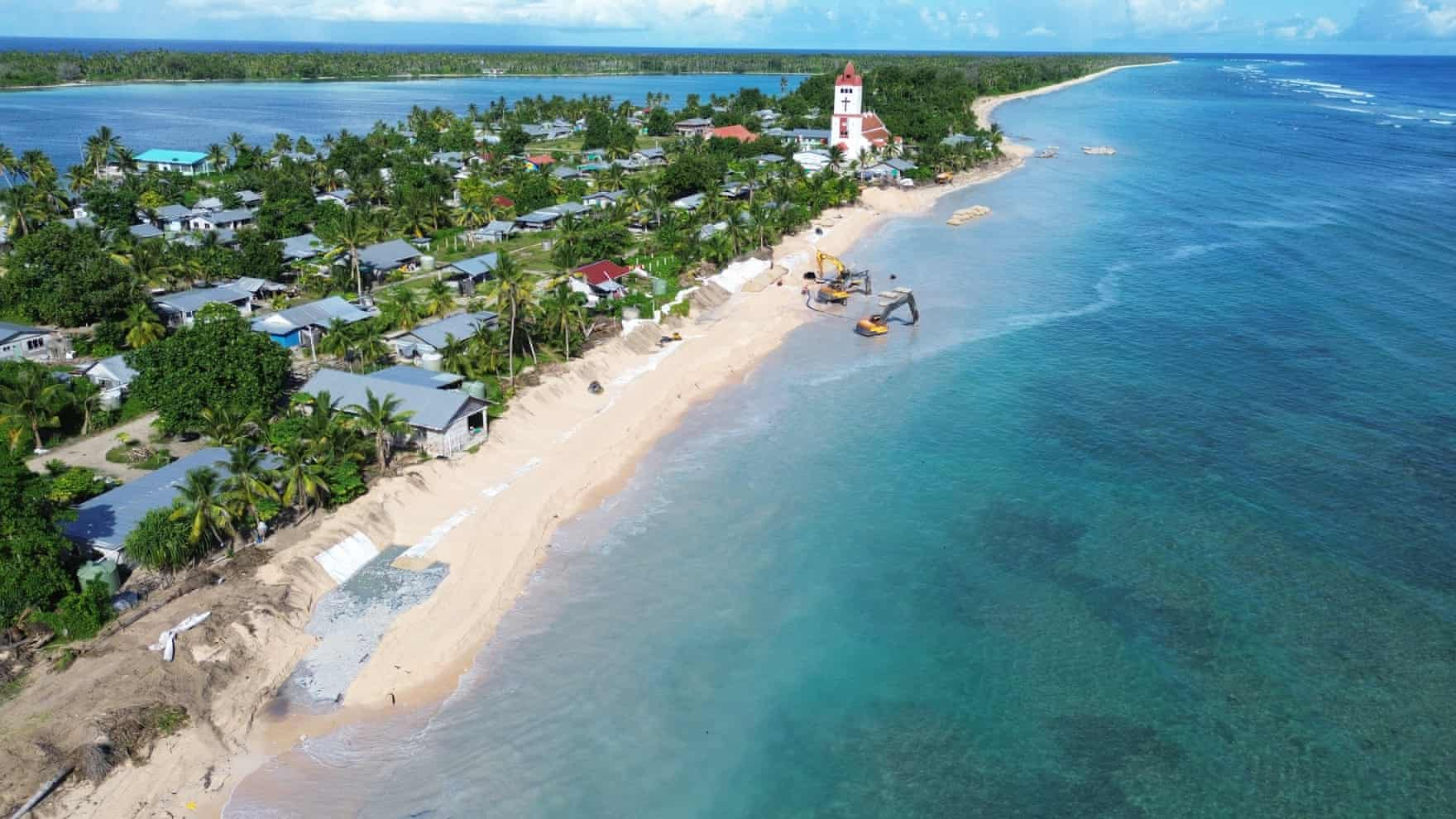13-year-old Tekafa Piliota, a student in the small coastal capital of Funafuti, dreams of becoming a doctor. However, her home, the island nation of Tuvalu located between Australia and Hawaii, lacks a university and faces an existential threat from rising sea levels.
 |
Part of the coastal adaptation project in Funafuti, Tuvalu. Photo: Tuvalu Coastal Adaptation Project |
Part of the coastal adaptation project in Funafuti, Tuvalu. Photo: Tuvalu Coastal Adaptation Project
Tekafa is one of 800 students at Nauti school in Funafuti hoping for a chance to relocate to Australia. On 16/6, Australia opened its first round of applications for Tuvalu citizens under the program.
Australian Foreign Minister Penny Wong stated that the program offers Tuvalu citizens the opportunity to live, study, and work in Australia as the impacts of climate change worsen.
Unlike temporary work programs, Tuvalu citizens will be granted permanent residency before departing. They will have access to healthcare, education, and other services equivalent to Australian citizens upon arrival. The program has no age or other restrictions, and allows free travel between the two countries.
Considered the world's first "climate visa," the program stems from the Falepili Alliance Treaty signed by the two countries in 2023. Initially, Australia will accept 280 Tuvalu citizens annually.
Tuvalu Prime Minister Feleti Teo called the agreement "unprecedented and groundbreaking", adding that many people are hopeful about the prospect of migration.
Tuvalu, one of the world's smallest nations, has a land area of approximately 26 km2 and a population of 11,000. 60% of the population resides in Funafuti, comprised of over 30 islets less than one meter above high tide. Projections suggest that 95% of the nation's landmass could be submerged by the end of the century.
 |
Land reclamation project in Funafuti, Tuvalu. Photo: Tuvalu Coastal Adaptation Project |
Land reclamation project in Funafuti, Tuvalu. Photo: Tuvalu Coastal Adaptation Project
However, the migration of young people from such a small nation raises concerns about a brain drain, creating labor shortages and cultural erosion.
"These individuals often play vital roles in their churches, villages, and families. Their absence will create gaps in the workforce and the transmission of cultural knowledge," said FotuoSamoa Tiatia, a researcher on labor migration in the Pacific region.
Prime Minister Teo dismissed these concerns, emphasizing the free movement agreement between the two nations and stating that migration to Australia "doesn't mean having to live out the rest of one's life" abroad.
In addition to the "climate visa," the Tuvalu government is collaborating with international agencies on various climate adaptation projects. These include elevating 7.8 hectares of land for flood resilience. Nearly 3 km of coastline will be reinforced with seawalls and natural buffers this year. Another project aims to reclaim 3.6 km2 of higher-elevation, climate-resilient land for resettlement.
Students like Tekafa welcome the opportunity to consider a different future, while acknowledging the difficulty of leaving their homeland.
Adriana Pedro Tausau, a final-year high school student in Funafuti, is enthusiastic about the migration opportunity. For her, it represents access to healthcare, education, and employment not only for herself, but also for her future children.
Bao Bao (From the Guardian)












